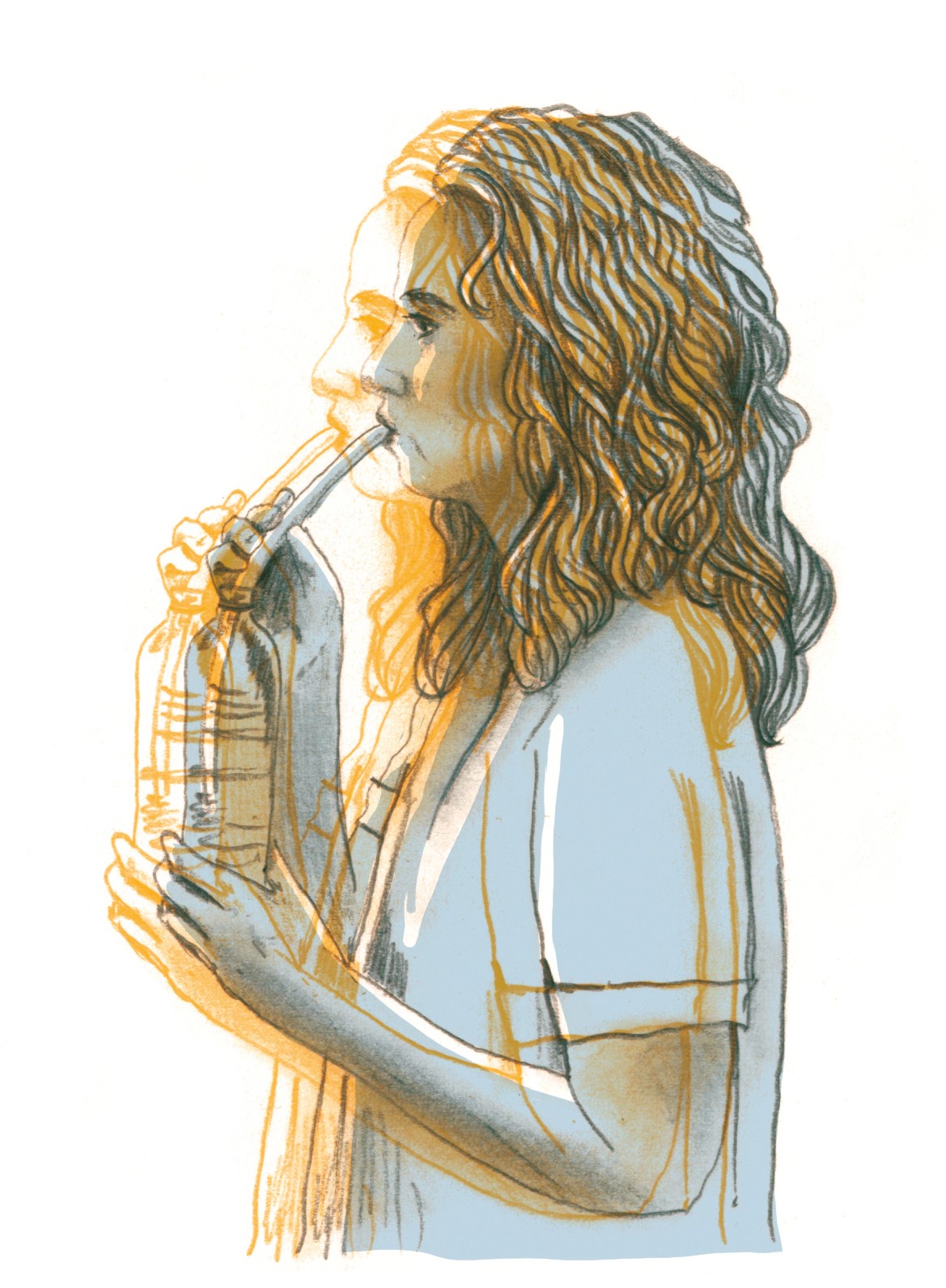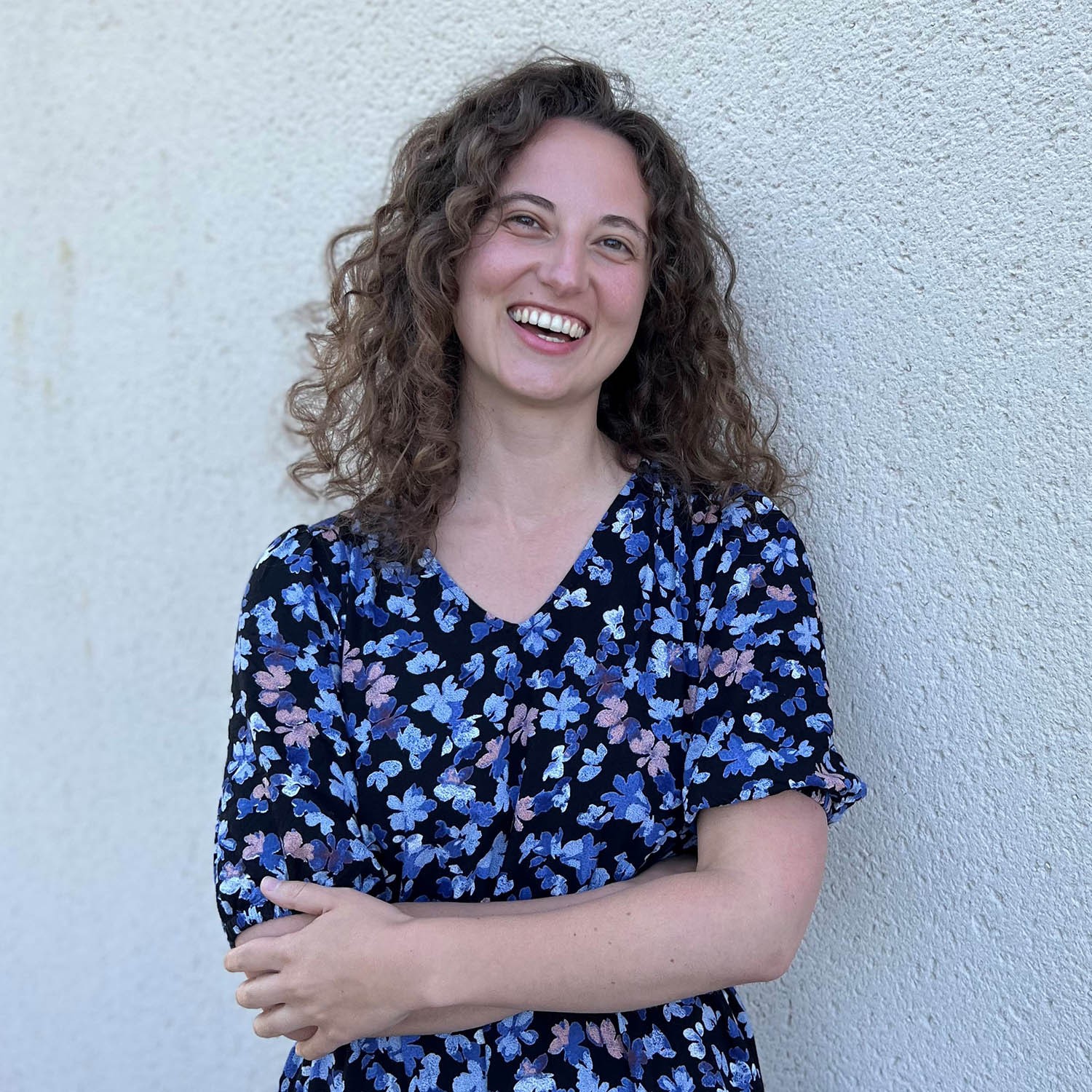She may not have become a professional singer, but she deals with the voice on a daily basis. Imke Kissel researches unilateral vocal cord paralysis and wants to develop therapies tailored to the needs of patients.
How did you become involved in vocal cord research?
Imke Kissel (smiles): “I have always been interested in my own voice. In fact, I have loved singing for as long as I can remember. As a child, I even dreamed of becoming a professional singer. I was fascinated by the voice, which is why I chose to study Speech and Language Therapy. When I got the chance to study it even more by doing a PhD, I was immediately very excited”.”
Do you still sing?
“Absolutely. I joined the Ghent University Choir in my second year. We perform at least twice a year at the end of the semester. I also met my best friends there. It’s great to be surrounded by people with the same passion every week.”
It’s not only your passion, but also the subject of your research. What exactly do you do?
“I research unilateral vocal cord paralysis. This is when one of the two vocal cords is temporarily or permanently paralysed. Normally, the two vocal cords move towards a centre line when you speak, sing or make other sounds. The air you squeeze between your vocal cords creates vibrations that manifest as sound. If one of your vocal cords is paralysed, it stops moving. In other words, you only have one vocal cord that is actively working to produce sound.”
Can you still speak?
“Sometimes. If the paralysed vocal cord is close enough to the midline, the other vocal cord can compensate. It’s often more tiring and you can’t speak as loudly, but you can still manage. If the paralysed vocal cord is too far from the midline, the other vocal cord cannot make up the difference. Whispering is the best you can do”.
How does a vocal cord become paralysed?
“In many cases it happens after surgery. A branch of the vagus nerve - which controls the muscles that move the vocal chords - is damaged. The vocal chords are the first victims. This often happens after surgery on the thyroid, heart or other areas close to the nerve. Sometimes it can be caused by infection, intubation or a tumour. And sometimes the cause is simply unclear.”
Is the paralysis permanent?
“It may be, but not necessarily. Speech therapy can be an option, because in these cases we try to reactivate the right muscles. Speech therapy can also teach you other techniques to make the best use of your voice without too much air leaking between the vocal cords. Some people opt for surgery... this is where a surgeon puts a kind of prosthesis to fix the vocal cord in the middle.”
“The big problem is that there are many different types of speech therapy techniques, but we don’t really know which one works best for what. That’s what my research is about: trying to map the methods and link them one by one to an outcome. With this information, speech therapists should be able to provide more effective and tailored therapy in the future.”

Imke while she is “bubbling”. This is a technique used to relax the muscles in and around the larynx. An example is the ‘Lax Vox’ method, where you sing or make sounds through a tube partially submerged in water.
How do you research this?
“I offer therapy to test subjects. These are patients who come to us via Ghent University Hospital and who want to take part in the study. The therapy consists of an intensive period of two weeks on average, followed by six weeks of therapy at a slower pace. Before, during and after, we check whether the voice quality has improved by means of stroboscopy or vocal cord examination. This involves passing a long, flexible camera from the patient’s nose to the throat to look at the movement of the vocal cords. But there is more to testing the quality of a voice. We also measure how much air is lost when a patient speaks, or how wide their vocal range is. And even how the patient feels about the development of their voice.”
The latter is a feeling and therefore not measurable?
“We try to measure this with a questionnaire, because it is not easy to objectify a feeling. But it’s important that we do, because you can’t underestimate how important your voice is to your personality. Everyone has some sort of standard for themselves. For some, even the smallest difference has a big impact on how they feel, for others it plays a smaller role.”
Why is that?
“Think about people in education. If they have difficulty speaking, they cannot stand in front of a class for a whole day. There are people with partial paralysis who are unable to work for weeks, months or even the rest of their lives. The emotional impact is immense. These consequences are often ignored. This is what I am trying to highlight in my research, in the hope that healthcare providers will pay more attention to the psychosocial needs of patients.”
Are you ever afraid of losing your voice?
“Of course I am. Sometimes I ask myself: ‘What if that happened to me?’ I depend on my voice too. And not only in my professional life. I don’t know what I would do if I couldn’t sing anymore.”

Imke Kissel is speech therapist and PhD researcher at the Department of Rehabilitation Sciences at the Faculty of Medicine and Health Sciences. Her favourite spot in Ghent: the Muinkpark, formerly for a break between classes, now for a picnic with friends.
Read also
Five (realistic) ways to move more in 2026
January often starts with good intentions… but those plans can be quickly abandoned. To exercise more is always high up everyone’s list, but there’s often a gap between wanting to do it and actually doing it. So how do you bridge that gap?
Is a stool transplant a potential treatment for Parkinson’s?
A recent study into Parkinson’s disease has shown that a stool transplant may constitute a new and valuable treatment of the disease. “It offers a potentially safe, effective and cost-efficient way of alleviating the symptoms and improving the quality of life of millions. A 'bacterial pill' might replace the stool transplant in the future. But more research is needed.”
Ignaas Devisch has been stimulating our thinking for years (and is now receiving recognition for it)
Twenty years ago, he was ridiculed as a scientist when he tried to communicate with the general public. Now, Ignaas Devisch is receiving the Science Communication Career Award for it. "It's wonderful recognition," says the medical philosopher. "Although communicating about science also involves learning to listen well."
‘Women are not just copies of men with breasts and ovaries.’
Van wetenschappelijk onderzoek tot medische behandelingen, decennialang stond de man centraal in de medische wereld. Betekent dat dan ook dat vrouwen daardoor minder goede zorg krijgen?



